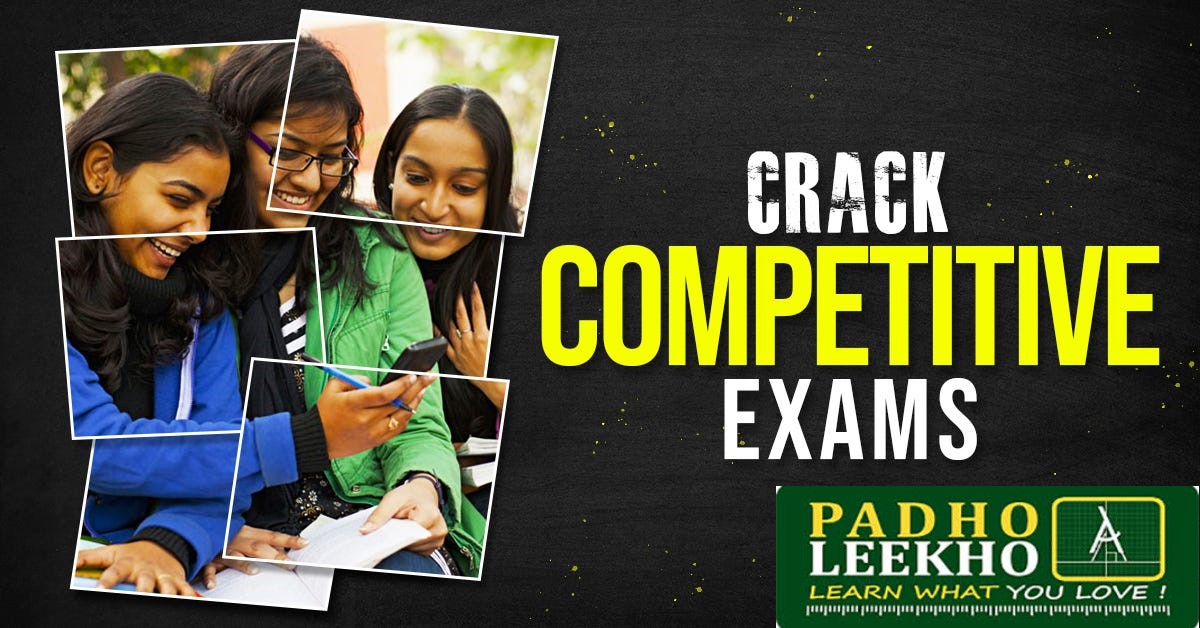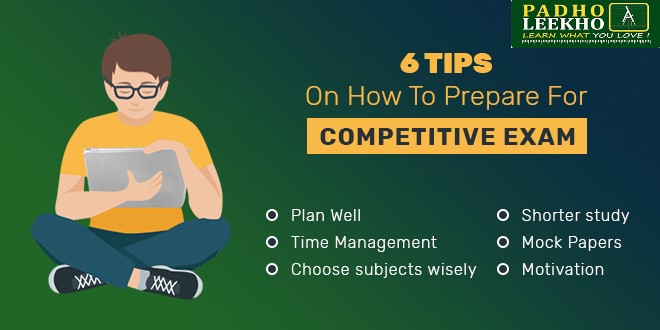
ALL Competitive Exams Courses by Padho Leekho
Numerous competitive exams are conducted in India for various purposes, including education, government jobs, and professional certifications.
These exams play a crucial role in the country’s educational and employment system.
Unlock Exclusive Access To Competitive Exams Course Materials.
ALL Competitive Exams Courses by Padho Leekho
The list of most popular and significant competitive exams in India:
- UPSC Civil Services Examination: The Union Public Service Commission (UPSC) conducts this examination to recruit candidates for various prestigious positions in the Indian Administrative Service (IAS), Indian Police Service (IPS), Indian Foreign Service (IFS), and other central services.
UPSC Civil Services Courses By Padho Leekho
- SSC Combined Graduate Level (CGL) Examination: The Staff Selection Commission (SSC) conducts the CGL exam for recruiting staff in various central government ministries, departments, and organizations.
SSC Courses By Padho Leekho
- IBPS Exams: The Institute of Banking Personnel Selection conducts several banking exams, including the IBPS PO (Probationary Officer), IBPS Clerk, and IBPS Specialist Officer exams to recruit candidates for various public sector banks.
IBPS/BANKING Courses By Padho Leekho
- GATE (Graduate Aptitude Test in Engineering): GATE is conducted jointly by the Indian Institutes of Technology (IITs) and the Indian Institute of Science (IISc) to assess the knowledge and understanding of engineering and science subjects. It is often a requirement for admission to postgraduate programs and for recruitment in PSUs.
GATE Courses By Padho Leekho
- CAT (Common Admission Test): The CAT is conducted for admission to the prestigious Indian Institutes of Management (IIMs) and other top business schools for their MBA and PGDM programs.
CAT/MBA Courses By Padho Leekho
- JEE (Joint Entrance Examination): JEE Main and JEE Advanced are conducted for admission to various engineering programs in top Indian engineering institutes, including the Indian Institutes of Technology (IITs).

IIT-JEE MAINS & ADVANCED Courses By Padho Leekho
- NEET (National Eligibility cum Entrance Test): NEET is the national-level medical entrance exam for admission to undergraduate medical and dental courses in India.
NEET/MEDICAL Courses By Padho Leekho
- CLAT (Common Law Admission Test): CLAT is conducted for admission to undergraduate and postgraduate programs in law at various national law universities in India.
CLAT/LAW Courses By Padho Leekho
- UGC NET (National Eligibility Test): UGC NET is conducted by the National Testing Agency (NTA) to determine the eligibility for Assistant Professor and Junior Research Fellowship (JRF) in Indian universities and colleges.
UGC/NET Courses By Padho Leekho
- CTET (Central Teacher Eligibility Test): CTET is conducted to assess the eligibility of candidates for teaching positions in central government schools, such as Kendriya Vidyalayas and Navodaya Vidyalayas.
CTET/TEACHER Courses By Padho Leekho
- State Public Service Commission Exams: Each state in India conducts its public service commission exams to recruit candidates for various state government jobs, including the State Civil Services.
STATE PSC Courses By Padho Leekho
- Railway Recruitment Board (RRB) Exams: The RRB conducts exams for various positions in the Indian Railways, including Group D, ALP (Assistant Loco Pilot), and others.
RRB/RAILWAYS Courses By Padho Leekho
- SSB, NDA, and CDS Exams: These exams are conducted by the Services Selection Board (SSB) and UPSC for recruitment into the Indian Armed Forces.
NDA/DEFENCE Courses By Padho Leekho
CDS/DEFENCE Courses By Padho Leekho
- NTSE (National Talent Search Examination): NTSE is a scholarship program for secondary school students to identify and nurture talent.
NTSE Courses By Padho Leekho
After completing the 12th board exams in India, students face several challenges as they embark on the journey to higher education and career choices.
Here are some of the significant challenges faced by Indian students after the 12th board exams:
- Choosing the Right Career Path: One of the most critical challenges is deciding on the right career path. Students often grapple with choosing between various academic and professional options, such as science, commerce, arts, or vocational courses.
- Entrance Examinations: Many professional courses, such as engineering, medical, and management, require students to clear competitive entrance exams, which can be highly competitive and demanding.
- College Admissions: Admission to reputed colleges and universities can be extremely competitive. Students need to score well in entrance exams or meet cutoff criteria to secure a seat in their preferred institution and course.
- Financial Constraints: The cost of higher education in India has been steadily increasing. Many students and their families face financial challenges in affording tuition fees, books, accommodation, and other expenses.
- Academic Pressure: The transition from school to college or specialized courses often comes with increased academic pressure. The syllabus becomes more extensive, and students may need to adapt to new teaching and learning methods.
- Peer and Parental Pressure: Students often face pressure from their peers and parents to excel academically and make the “right” career choices, which can lead to stress and anxiety.
- Mental Health Challenges: The pressure to perform well in exams, make career decisions, and meet high expectations can lead to mental health issues among students. Depression, anxiety, and stress are common concerns.
- Lack of Career Guidance: Many students lack access to proper career guidance and counseling, which can help them make informed decisions about their future.
- Linguistic and Regional Challenges: India is a linguistically diverse country, and language can be a barrier for students who want to pursue higher education in states with different official languages.
- Limited Job Opportunities: After completing higher education, graduates may face challenges in finding suitable job opportunities in their field of study, especially if their chosen course does not align with the job market’s demands.
- Rising Competition: The number of graduates and job seekers in India is increasing, making the job market highly competitive. Students may need to enhance their skills and qualifications to stand out.
- Social and Cultural Expectations: Students often deal with societal and cultural expectations related to marriage, family, and social roles, which can conflict with their educational and career aspirations.
- Internship and Practical Experience: Gaining practical experience and internships can be a challenge for some students, particularly if they are pursuing degrees that require hands-on training.





















